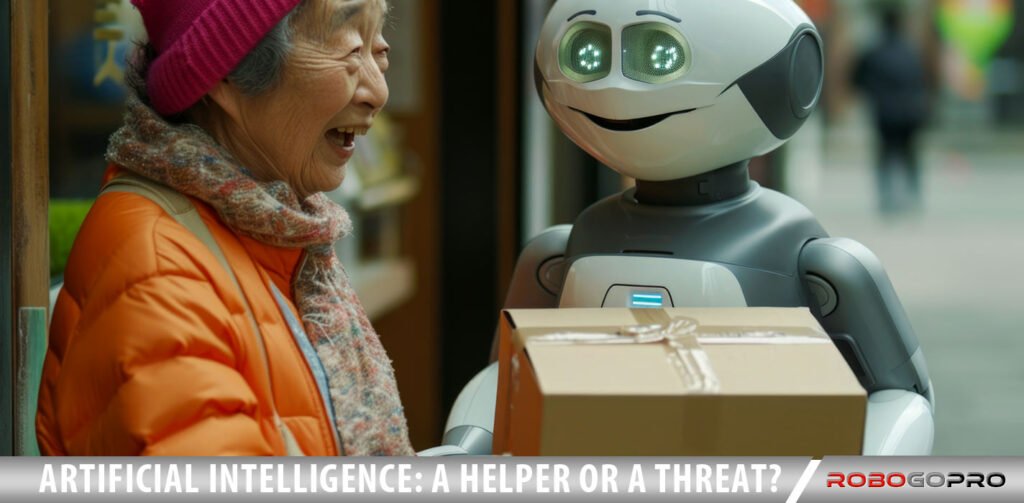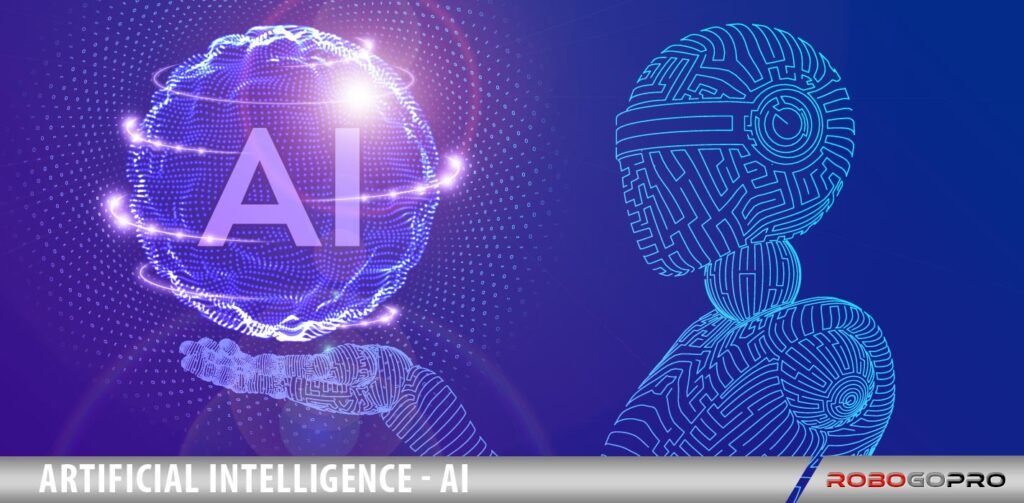-
This article will explore the various aspects of AI and discuss whether it is a helper or a threat and whether there are concerns about the ethical implications and potential threats associated with its rapid advancement.
-
Table of Contents
- Artificial Intelligence: A Helper or A Threat?
- The Rise of Artificial Intelligence
- The Benefits of Artificial Intelligence
- The Ethical Concerns
- AI and Human Life
- AI and Communication
- AI and Business
- The Future of AI
Artificial Intelligence: A Helper or A Threat?
Artificial Intelligence (AI) has become an integral part of our lives, revolutionizing various industries and transforming the way we live, work, and communicate. With its ability to process vast amounts of data and perform complex tasks, AI has the potential to bring numerous benefits to society. However, there are concerns about the ethical implications and potential threats associated with the rapid advancement of AI.
In this article, we will explore the various aspects of AI and discuss whether it is a helper or a threat.
The Rise of Artificial Intelligence
Artificial Intelligence refers to the development of computer systems that can perform tasks that typically require human intelligence. It encompasses various technologies, including machine learning, natural language processing, computer vision, and robotics. Over the past decade, AI has made significant progress thanks to advancements in computing power, big data, and algorithmic improvements.
AI is already being used in various industries, such as healthcare, finance, transportation, and entertainment. In healthcare, AI-powered systems can analyze medical images to detect diseases with higher accuracy than human doctors. In finance, AI algorithms can analyze vast amounts of financial data to identify patterns and predict investment decisions.
The Benefits of Artificial Intelligence
Artificial Intelligence offers numerous benefits that can improve our lives and enhance productivity.
Here are some key advantages of AI:
- Automation: AI can automate repetitive and mundane tasks, allowing human workers to focus on more creative and complex activities. This can lead to increased productivity and efficiency in various industries.
- Improved Decision-Making: AI algorithms can process vast data and provide valuable insights to support decision-making. For example, in business, AI can analyze customer data to identify trends and preferences, enabling companies to make data-driven decisions.
- Enhanced Communication: AI-powered chatbots and virtual assistants have improved communication between businesses and customers. These intelligent systems can provide instant responses and personalized recommendations, leading to better customer experiences.
- Advancements in Healthcare: AI has the potential to revolutionize healthcare by enabling early disease detection, personalized medicine, and more efficient drug discovery. For instance, AI algorithms can analyze genetic data to identify individuals at risk of certain diseases.
The Ethical Concerns
While AI offers numerous benefits, there are ethical concerns that need to be addressed. One of the main concerns is the potential impact on jobs and the workforce. As AI advances, there is a fear that it may replace human workers, leading to unemployment and economic inequality. However, history has shown that technological advancements often create new job opportunities. For example, the rise of the internet led to the creation of new industries and job roles that were previously unimaginable.
Another ethical concern is the bias and discrimination that can be embedded in AI systems. AI algorithms are trained on large datasets, which may contain biases present in the data. This can result in biased decision-making, such as discriminatory hiring practices or unfair loan approvals. It is crucial to ensure that AI systems are trained on diverse and unbiased datasets to mitigate these issues.
Privacy is another significant concern regarding AI. AI systems often require access to vast amounts of personal data to function effectively, raising questions about data security and the potential misuse of personal information. Stricter regulations and robust data protection measures are necessary to address these concerns and protect individuals’ privacy.
AI and Human Life
Artificial Intelligence has the potential to significantly impact human life in various ways.
Here are some examples:
- Healthcare: AI-powered systems can assist doctors in diagnosing diseases, predicting patient outcomes, and recommending personalized treatment plans. This can lead to improved healthcare outcomes and better patient care.
- Transportation: AI-powered self-driving cars have the potential to reduce accidents and improve road safety. They can also make transportation more accessible for individuals with disabilities or limited mobility.
- Education: AI can personalize learning experiences by adapting to individual students’ needs and providing tailored recommendations. This can enhance the effectiveness of education and make learning more engaging and interactive.
- Assistive Technology: AI-powered devices and applications can assist individuals with disabilities in performing daily tasks, improving their quality of life and independence.
AI and Communication
Artificial Intelligence has transformed the way we communicate and interact with technology.
Here are some examples:
- Virtual Assistants: AI-powered virtual assistants, such as Siri, Alexa, and Google Assistant, have become an integral part of our daily lives. They can perform tasks, answer questions, and provide information, making our lives more convenient.
- Language Translation: AI-powered language translation tools have made communicating with individuals who speak different languages easier. These tools can translate text or speech in real-time, breaking language barriers.
- Chatbots: AI-powered chatbots are being used by businesses to provide instant customer support and assistance. They can handle customer queries, provide product recommendations, and even process transactions.
AI and Business
Artificial Intelligence has the potential to transform businesses and drive innovation.
Here are some ways AI is being used in the business world:
- Customer Service: AI-powered chatbots and virtual assistants can handle customer inquiries and provide personalized recommendations, improving customer satisfaction and reducing response times.
- Data Analysis: AI algorithms can analyze large datasets to identify patterns, trends, and insights that can help businesses make informed decisions and gain a competitive edge.
- Process Automation: AI can automate repetitive tasks, such as data entry and document processing, freeing employees to focus on more strategic and value-added activities.
- Risk Management: AI algorithms can analyze market data and identify potential risks, enabling businesses to make proactive decisions and mitigate potential threats.
The Future of AI
The future of Artificial Intelligence holds immense potential, but it also comes with challenges. As AI continues to advance, it is crucial to address the ethical concerns and ensure that AI is developed and used responsibly.
Here are some key takeaways:
-
- AI has the potential to bring numerous benefits to society, including automation, improved decision-making, enhanced communication, and advancements in healthcare.
- Ethical concerns associated with AI include job displacement, bias and discrimination, and privacy issues. These concerns need to be addressed through regulations and responsible development practices.


